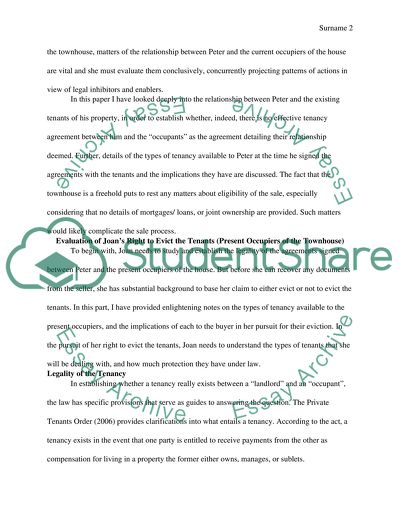Cite this document
(“Land Law Essay Example | Topics and Well Written Essays - 1750 words - 1”, n.d.)
Land Law Essay Example | Topics and Well Written Essays - 1750 words - 1. Retrieved from https://studentshare.org/law/1668305-land-law
Land Law Essay Example | Topics and Well Written Essays - 1750 words - 1. Retrieved from https://studentshare.org/law/1668305-land-law
(Land Law Essay Example | Topics and Well Written Essays - 1750 Words - 1)
Land Law Essay Example | Topics and Well Written Essays - 1750 Words - 1. https://studentshare.org/law/1668305-land-law.
Land Law Essay Example | Topics and Well Written Essays - 1750 Words - 1. https://studentshare.org/law/1668305-land-law.
“Land Law Essay Example | Topics and Well Written Essays - 1750 Words - 1”, n.d. https://studentshare.org/law/1668305-land-law.


